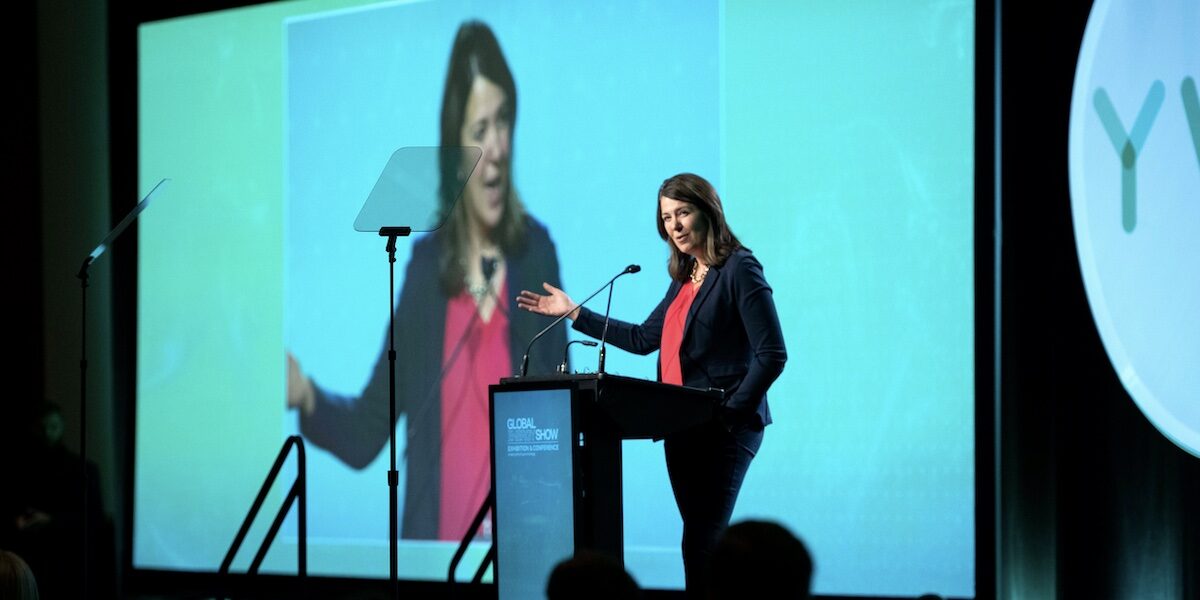It should be well known to everyone now that the claim Alberta Premier Danielle Smith was censored or banned by Facebook is nothing more than a tall tale.
Last week, Smith used Twitter to claim she had been suspended from posting messages on Facebook.
“Big tech and government censorship is becoming a danger to free speech around the world,” she or someone with the keys to her social media accounts tweeted somewhat ungrammatically that day, going on to claim that “my Facebook account has been banned from posting content for a ‘few days’.”
“As the Premier of a province of 4.6 million Albertans,” she complained, “if they can prevent me from communicating with you, imagine what they can do to any one of us. Regardless of our political leanings, we must all stand against censorship.”
As noted in this space, this provoked a certain amount of ironic hilarity on social media at the time, given the practice of Smith or her communications team to ban almost anyone who utters even the mildest criticism in response to her social media postings.
It wasn’t long, however, before Catherine Griwkowski of Politics Today managed to get in touch with Meta, Facebook’s parent company, which said, “There were no restrictions placed on the Premier’s Page. One of the Page’s administrators faced restrictions, but that did not impact the underlying Page’s ability to post content.”
Meta’s response has now been widely reported, and many media outfits have noted that the page indicates it has five administrators, none of whom are identified by name.
Smith’s tweet has not been removed.
Legitimate questions at this point include whether Smith or her social media administrators included information they knew to be misleading when they published the original tweet, as seems likely, and who the administrator is who faces restrictions, and for what.
The second question is prompted in part by Rob Anderson, the former Wildrose MLA who is now the executive director of the Premier’s Office, for his insulting and personal attack on an Alberta political scientist who had commented mildly on the irony of the premier’s cries of outrage when she herself is guilty of blocking scores, perhaps thousands, of critics.
However, perhaps we should be grateful to Smith and Anderson for highlighting a legitimate concern about the power of huge U.S.-based social media companies like Meta, Twitter and Google to influence public opinion and make arbitrary decisions about who gets to speak about what, not to mention their willingness to allow malignant forces to make false claims to influence public opinion as long as there’s money to be made.
Alert readers will also be aware of Canadian Conservative parties’ nearly hysterical efforts to portray the federal Liberals’ Online Streaming Act, which would impose Canadian content measures on Internet streaming services, as a sinister “censorship bill.”
“Conservatives will always stand up for Canadians’ right to freely express themselves, and their access to information, free from the claws of government censors,” the Conservative Party of Canada screeches on its web page, a grainy manipulated photo of Justin Trudeau illustrating the overheated rhetoric.
Meanwhile, the CPC’s Alberta counterparts – essentially the same people – are shrieking about alleged online censorship by megalithic U.S. social media corporations supposedly deaf to the craving of Canadians for free speech.
The obvious implication of Smith’s (albeit factually deficient) complaint is that there needs to be some sort of government regulation of social media giants.
So, which is it?
We thought the Conservatives – united or otherwise – were the ones who believed the private sector always did everything better. One wonders: Why aren’t they, in this instance, sticking to their lane?
But let it be said that with Facebook and Twitter now operating in many countries, including Canada, as de facto public utilities, there is merit to the idea they should be subject to government regulation to ensure they don’t become a danger to free speech and human rights.
Moreover, if social media companies will not regulate themselves to prevent the spread of hate, false information, or invasions of users’ privacy (which, in fairness, Meta may have been trying to do with its temporary suspension of the unnamed UCP page administrator) then governments will indeed need to step in to protect our democracy.



